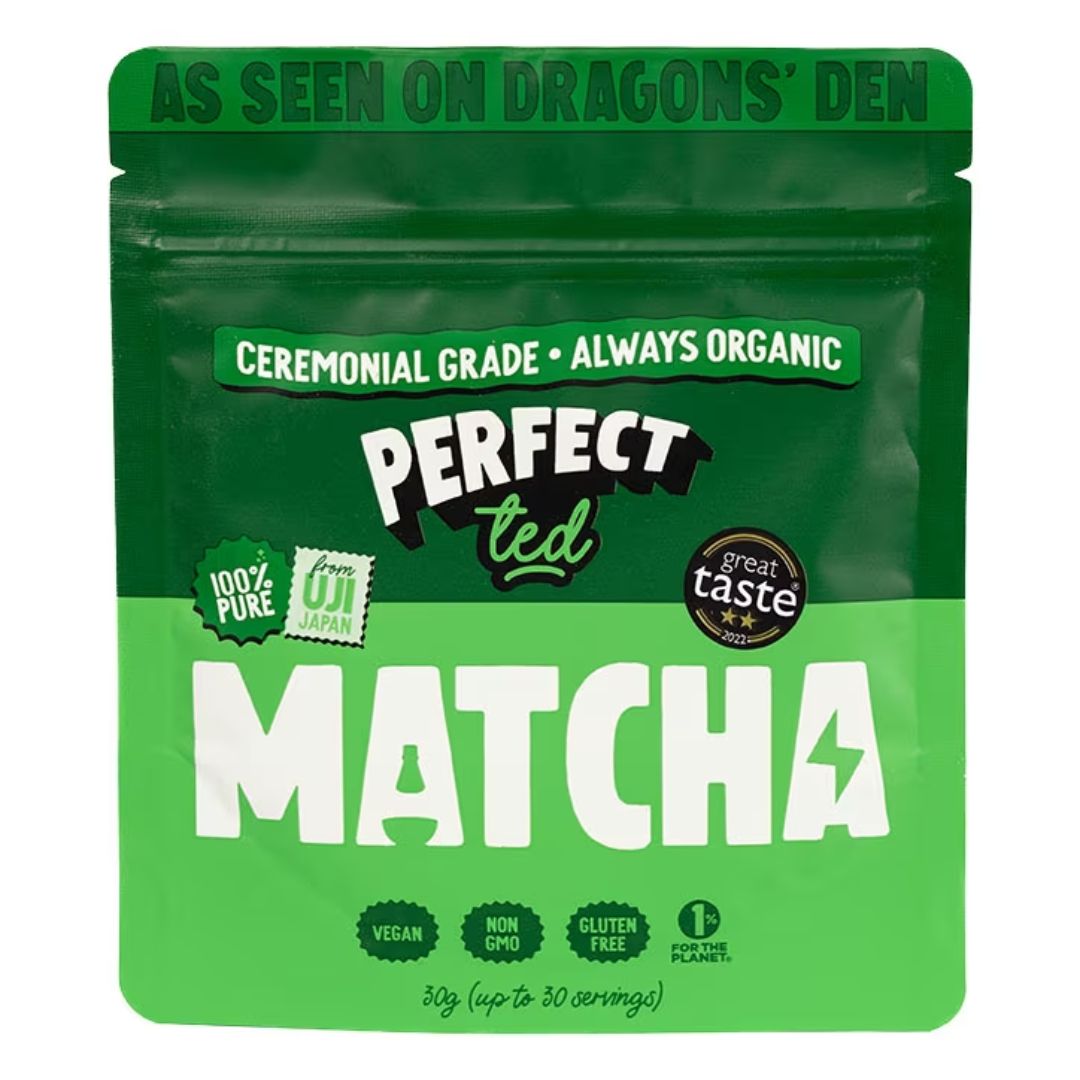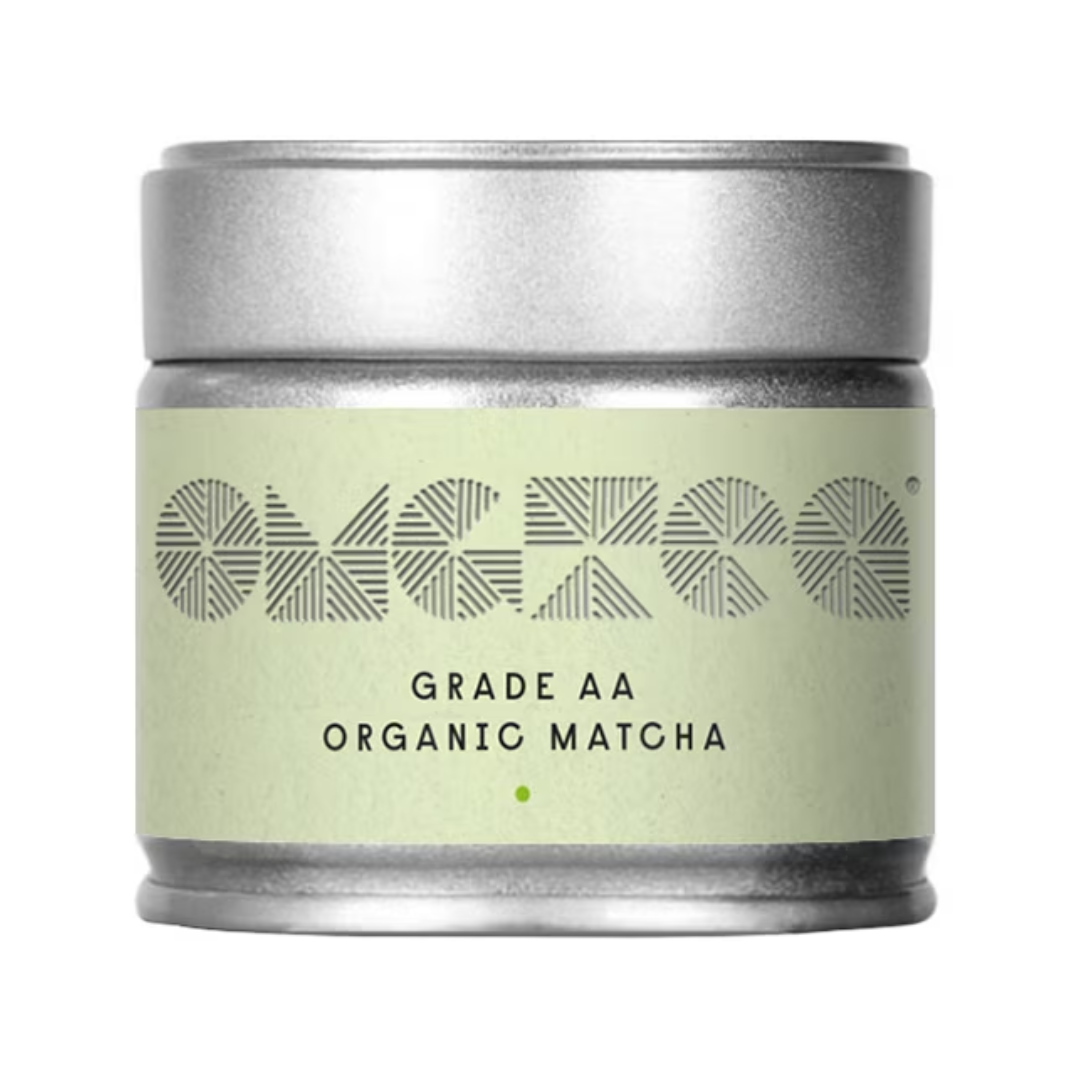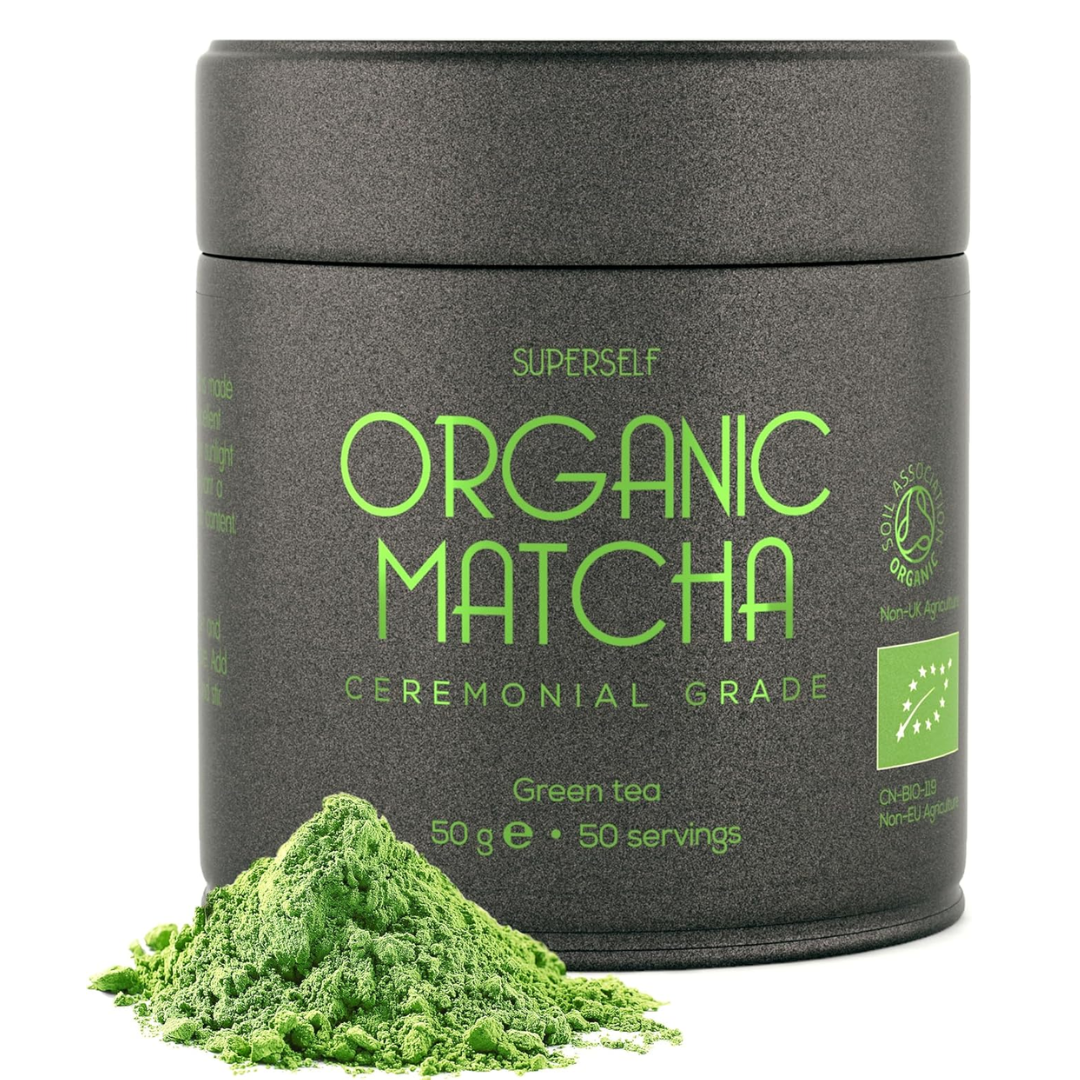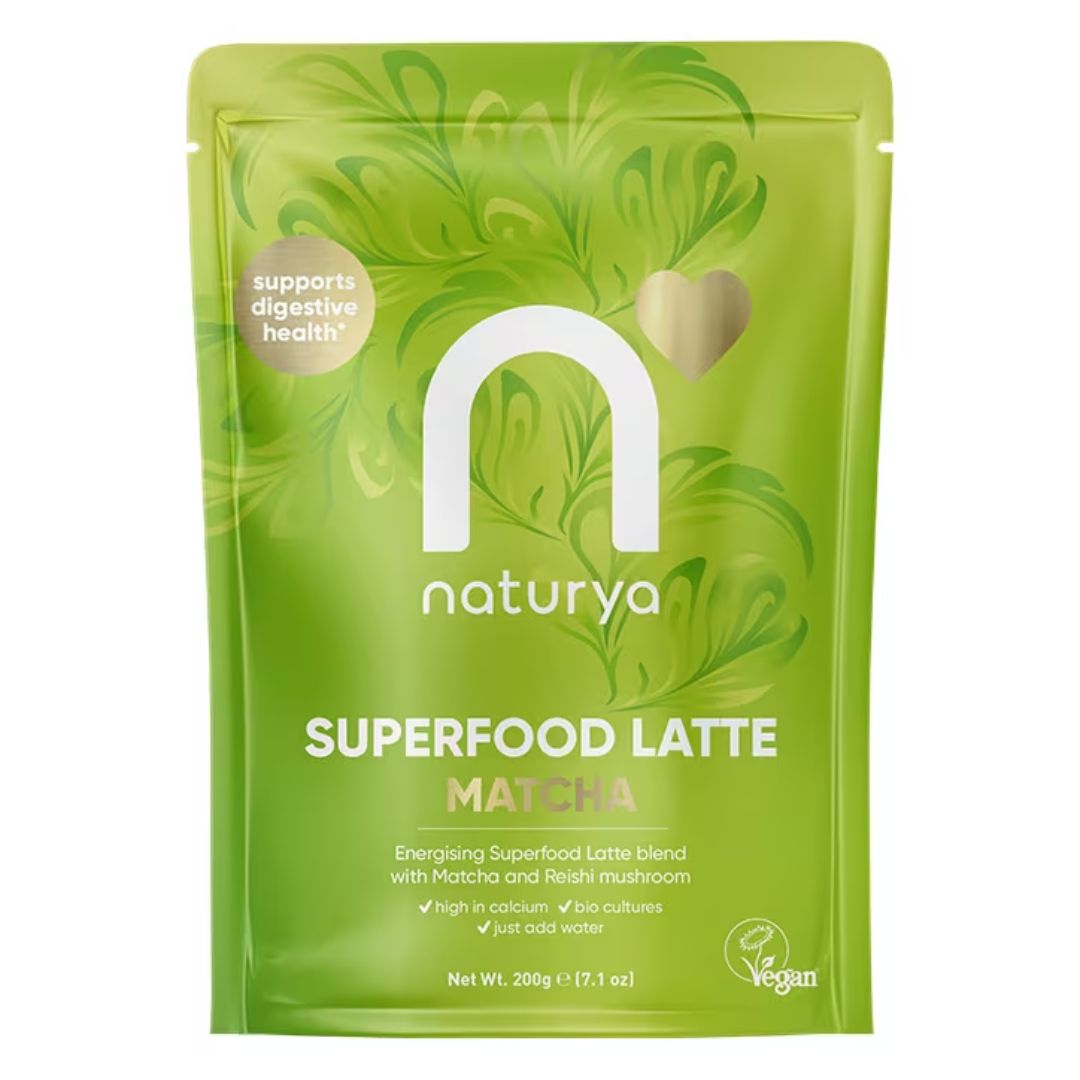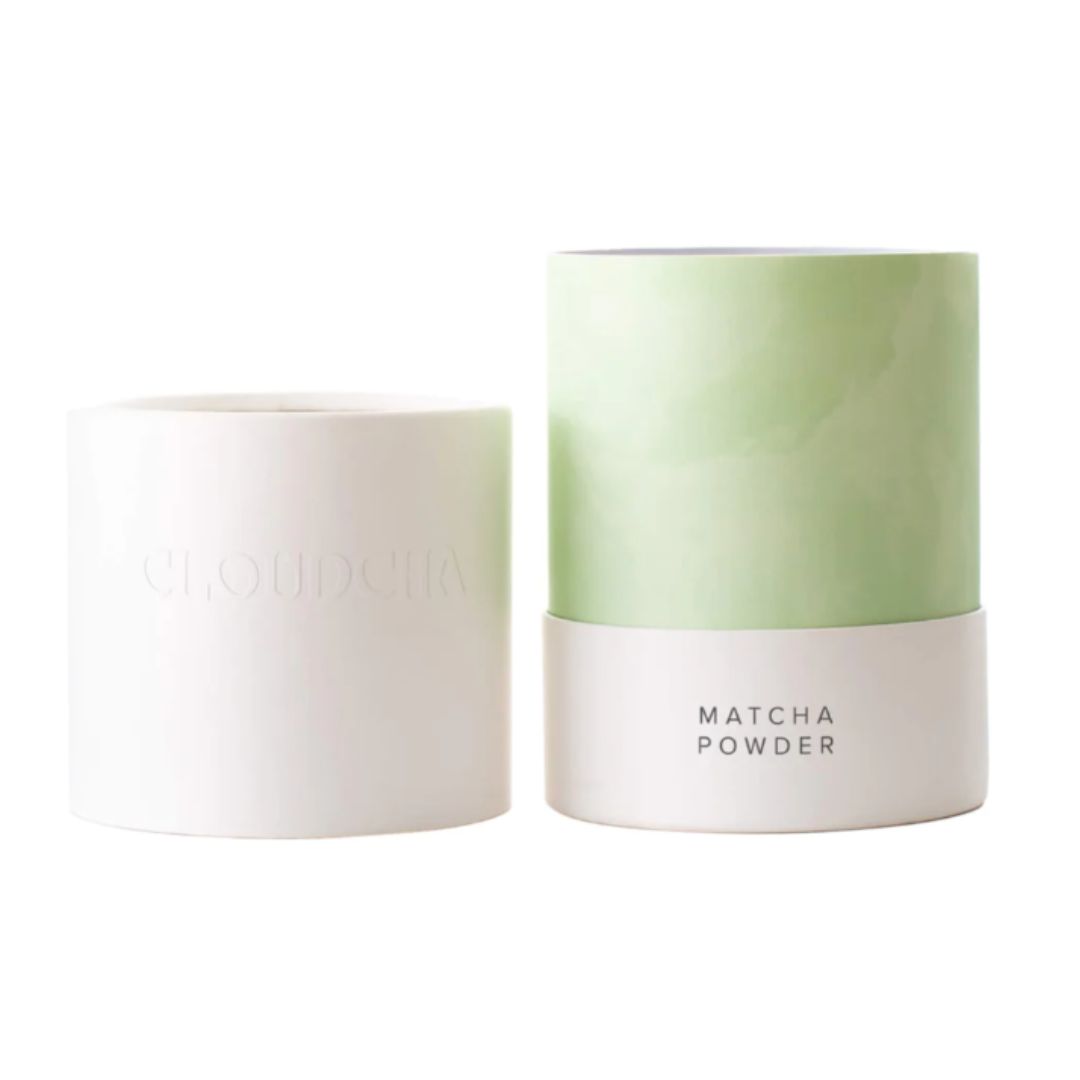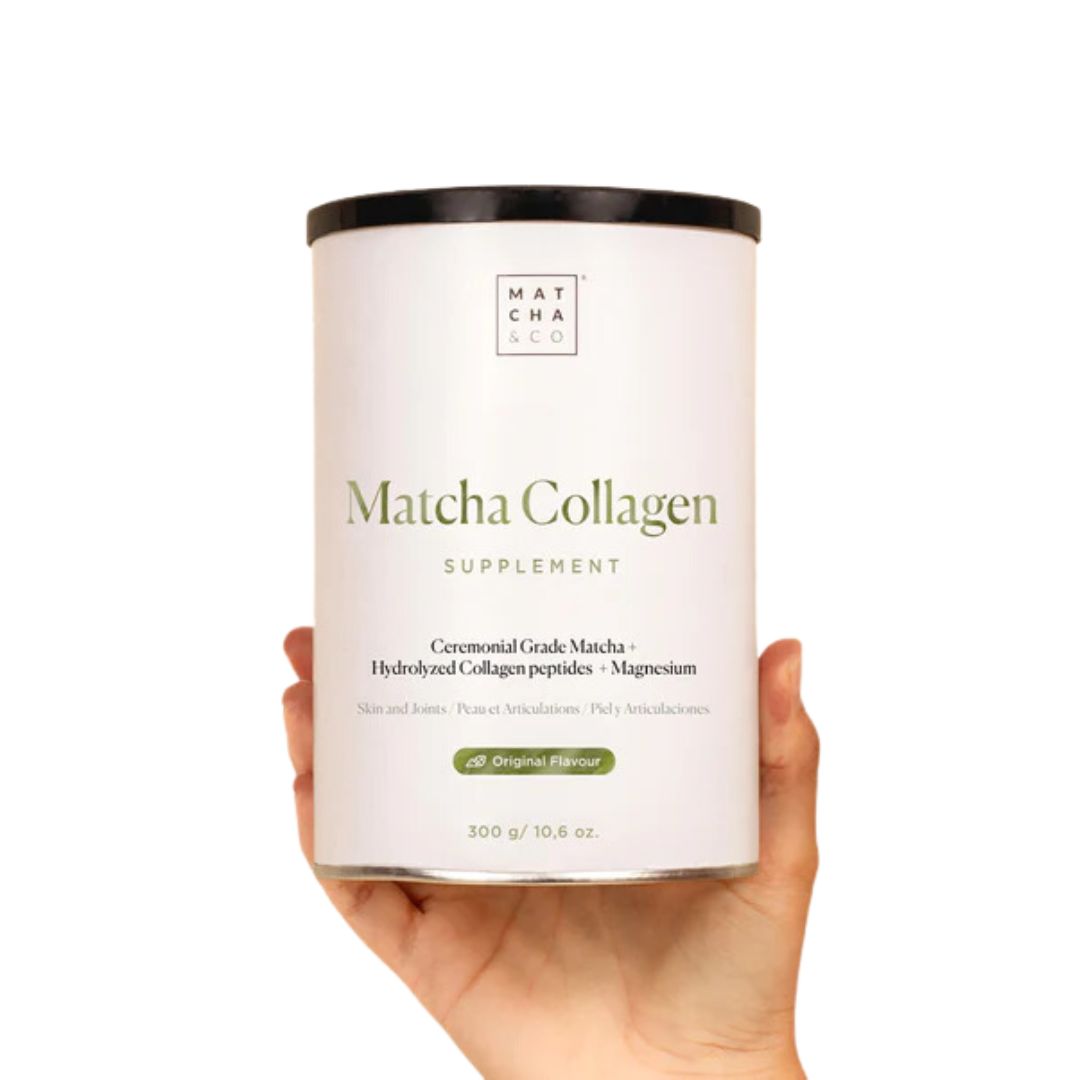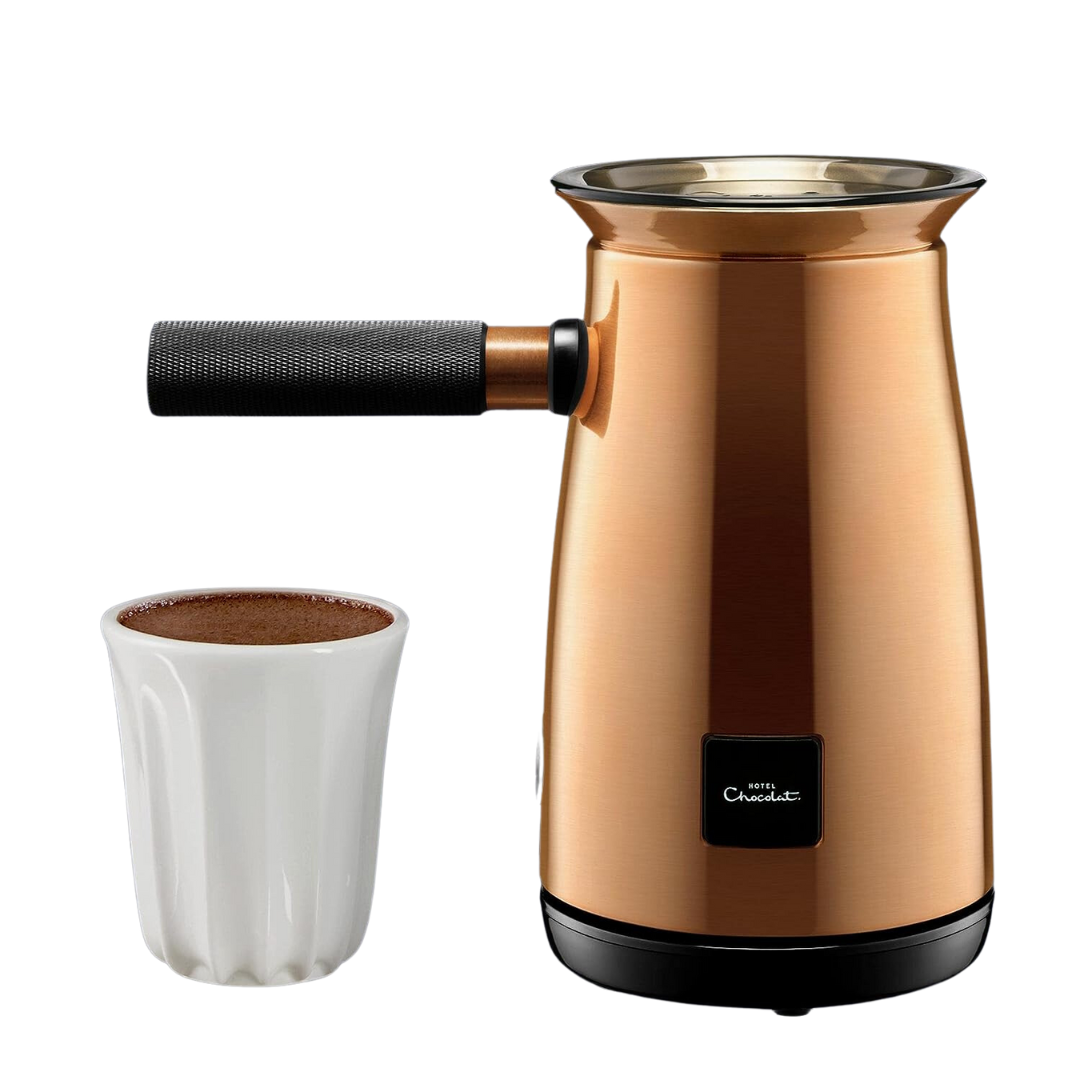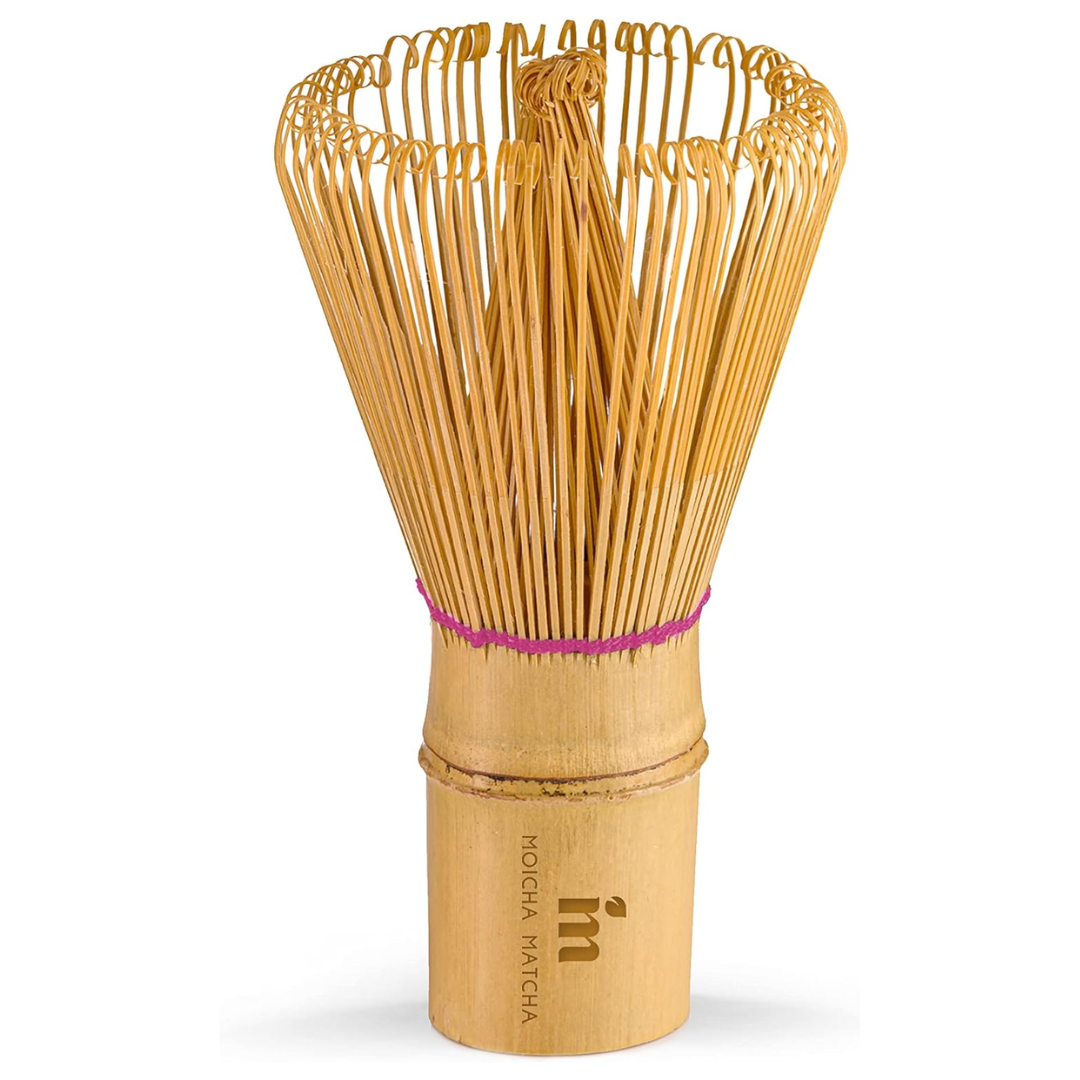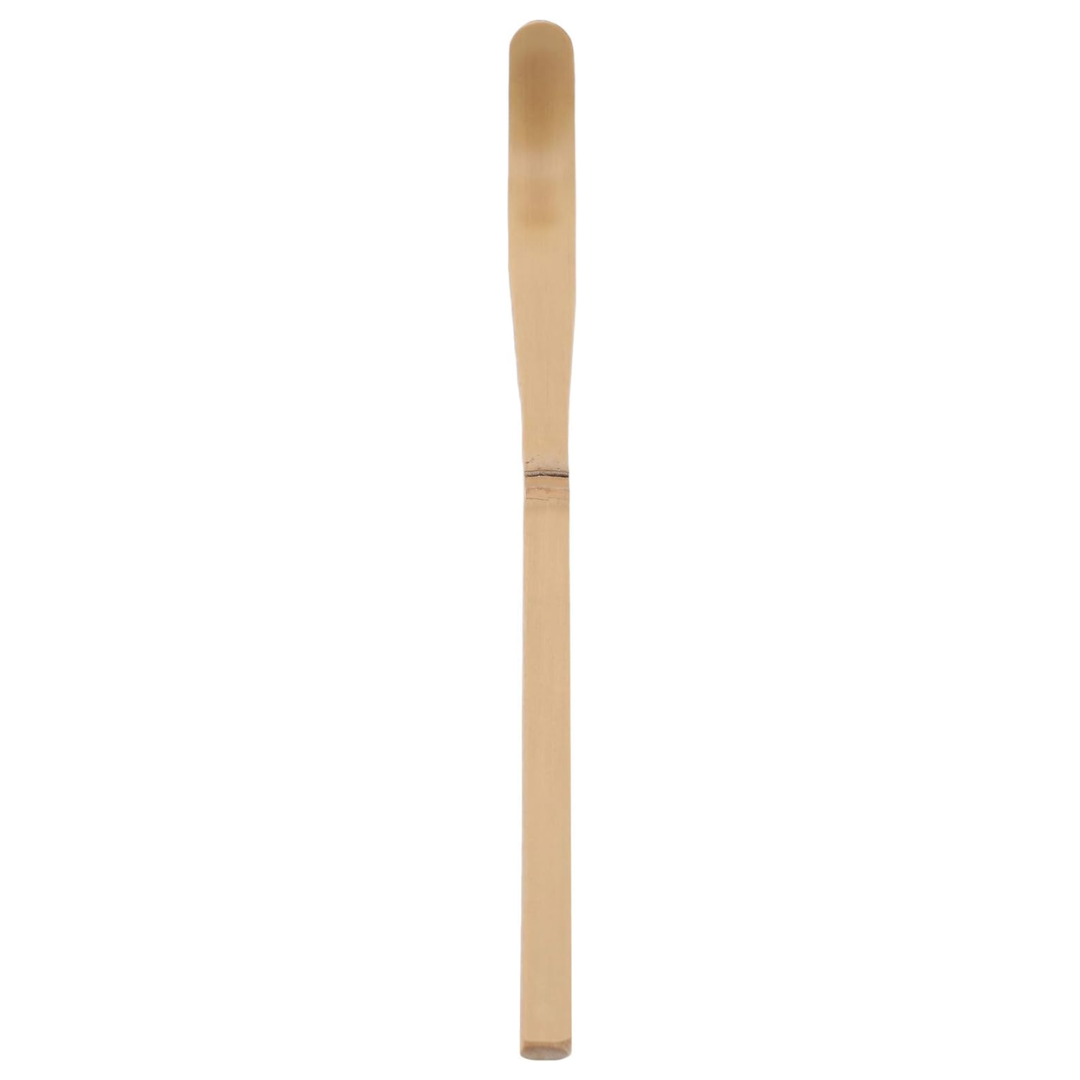I switched coffee for matcha - and it completely transformed my energy levels throughout the day
Spoiler alert: I’m a huge fan.

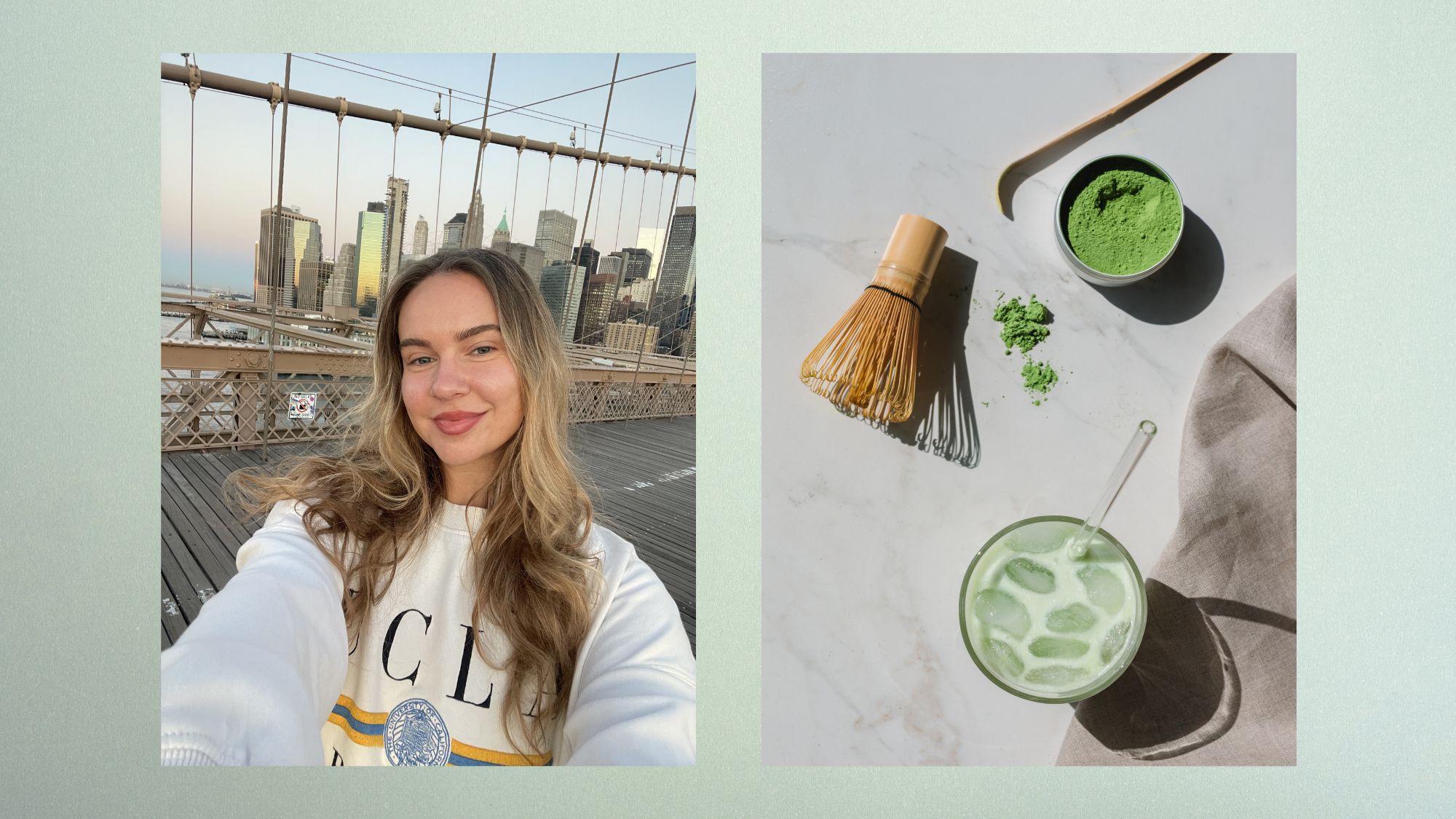
Celebrity news, beauty, fashion advice, and fascinating features, delivered straight to your inbox!
You are now subscribed
Your newsletter sign-up was successful
I'll be honest with you - I love coffee, but it doesn't love me. Whenever I drink my go-to iced oat caramel latte, I enjoy the delicious taste for about ten minutes before I start noticing the other less desirable effects starting to creep in (if you're sensitive to caffeine, you'll know the drill). That's why, when I read about the benefits of matcha earlier this year, I was intrigued.
When I drink coffee, I notice my heart rate increase and my hands get shaky, not to mention an anxious jittery feeling in my chest and the pit of my stomach. While I've no doubt I'm more sensitive to caffeine than the average person, I was not enjoying the side effects.
That said, a busy work period and the reintroduction of 101 deliciously tempting seasonal drinks on menus across London meant I'd started drinking coffee more than I'd like. Naturally, I'd been feeling the negative effects more, too. So when MC UK Senior Health Editor Ally asked me if I wanted to swap coffee for matcha for two weeks and write it up for her, I jumped at the chance. While I’ve tried and loved a number of matcha powders over the years myself, I wanted to give it a proper test by only drinking matcha - no coffee whatsoever - for a few weeks. Would I enjoy a more sustained caffeine boost without the crash and jitters? I was about to find out - and you will too if you keep scrolling.
Here at Marie Claire UK, we pride ourselves on personally testing any health-related topic, workout or product we speak about. We go through a pretty scrupulous testing process to ensure we’re fully equipped to give you our honest opinion (you can read more about our testing process, here, to get the full picture).
Don't miss how other writers got on drinking apple cider vinegar, lemon water, and ginger shots every day, while you're here.
The benefits of matcha span more sustained energy and fewer slumps - so, I drank it instead of coffee for two weeks
What is the difference between matcha and green tea?
Before embarking on my matcha journey, I thought it important to do my research on what I'd actually be drinking. Speaking to Jess Sepel, nutritionist and founder of JSHealth Vitamins , she shared that matcha is "a high-grade green tea ground into powdered form wit ha vibrant colour, smooth consistency and balanced flavour profile that makes it ideal for use in beverages and cooking."
While traditional green tea is made by steeping the tea leaves in hot water, in turn releasing the nutrients, matcha is made by crushing the dehydrated green tea leaves into a fine powder, This can then be mixed into water or milk.
Celebrity news, beauty, fashion advice, and fascinating features, delivered straight to your inbox!
As nutritionist Lauren Windas adds, matcha is much more concentrated than regular green tea, "This is because it uses the entire green tea leaves," she details. "Regular green tea simply packages the leaves in tea bags which are then steeped in water. With green tea you are therefore only drinking the infusion, however, when you consume matcha you are consuming the whole ground-up leaf and therefore all of its goodness."
By drinking the entire leaf instead of simply steeping it, you're essentially getting a higher concentration of nutrients and antioxidants from the leaf, which means that any health benefits are maximised. Sound good, right?
What are the benefits of matcha green tea?
I’ve always loved matcha for how it makes me feel - alert without the jitters I experience with coffee. As the current research shows, there are some pretty impressive health benefits to drinking matcha regularly, too. As this 2018 study published in the Nutrients journal showed, it can reduce both your stress levels and anxiety.
Similarly, this study published two years later found that drinking matcha could be beneficial if you workout regularly, as it may make your body more effective at breaking down fats.
On the benefits of matcha, Sepel praises it as a nutrient-dense alternative to coffee. "It's shown to be high in antioxidants and healthy fats, and it's a great way to elevate your mornings and have as an alternative pick-me-up to coffee," she explains. She even recommends adding it to your smoothies and other recipes.
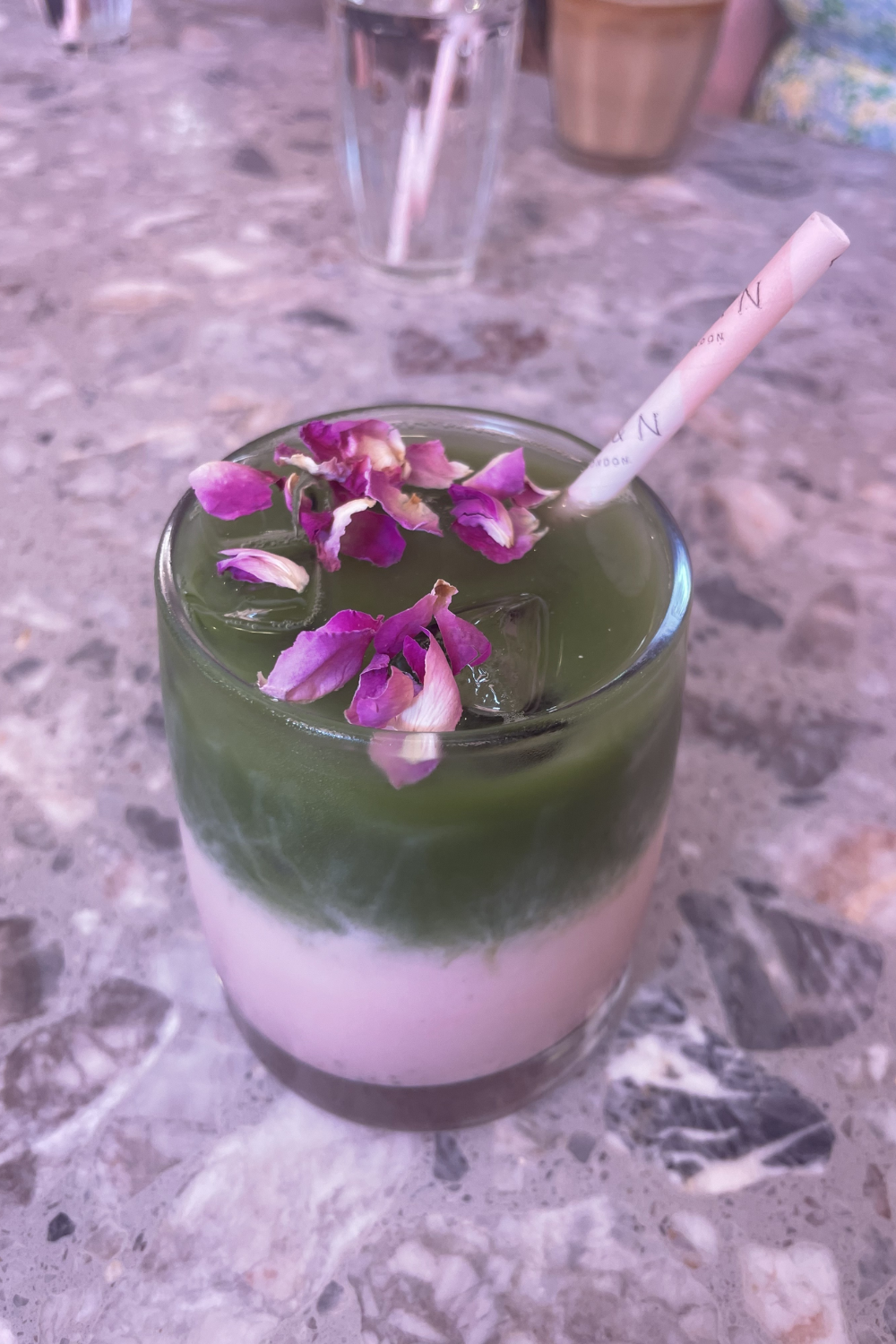
One of the matcha drinks Valeza enjoyed while testing
Week one of drinking matcha
I must admit, I had a bit of a headache for the first few days as I got used to the complete lack of coffee (matcha naturally has less caffeine than coffee, so this was to be expected). That said, after three or four days, this passed, and I definitely felt more alert and less sluggish.
I definitely didn’t miss the anxious jittery feeling that usually accompanies my caffeine fix, and my go-to latte was actually pretty easy to swap out with matcha tea - if anything, the tea was even easier to make (more on this, below). Whenever I got bored of tea, I’d get a matcha latte to switch things up - it was sort of essential during coffee meetings and whenever I just wanted a little treat.
One thing I noticed pretty early on was that drinking matcha every day encouraged me to get back into a regular morning routine. Having had a pretty busy few months recently, my regular routine had been thrown a little out of whack. To get the most out of this experiment I wanted to ensure I had a matcha every single day, so I made sure to carve out some time each morning to make and drink my matcha beverage.
It reminded me of the simple pleasure of taking time out of my busy day. Even if I hadn’t seen any other benefit from the experiment, this was enough to remind me to slow down, reflect and take a mindful moment for myself - even if only for ten minutes a day.
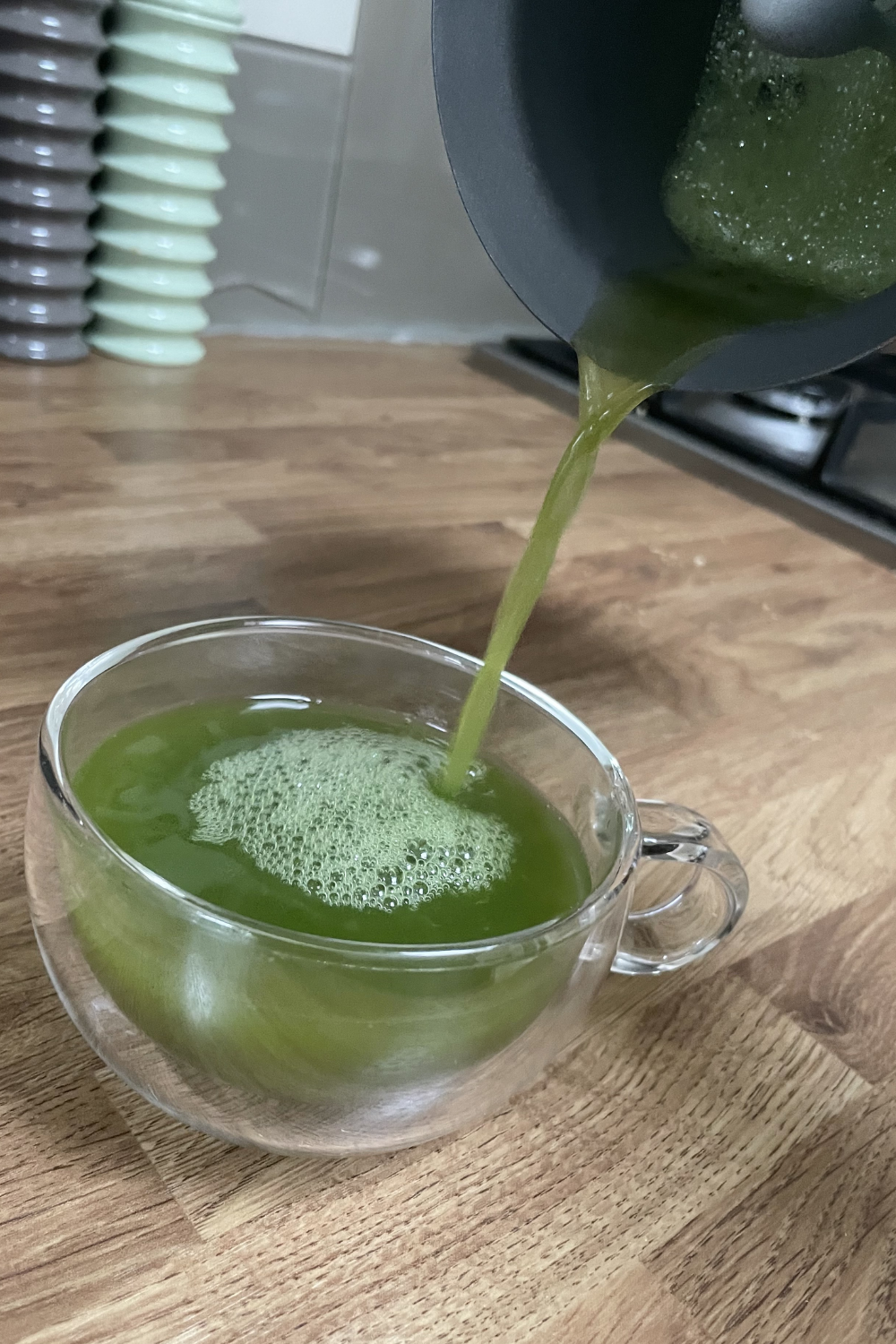
Valeza pouring a matcha green tea during the experiment.
Week two of drinking matcha
The second week of my experiment was probably where I noticed the most difference. I started to feel less bloated after big meals - something I reckon the matcha was to thank for. Not to mention - ahem - things were moving a lot more regularly than they had been before, which no doubt helped.
While I can't definitely confirm it was the matcha, and have no doubt several other factors (lower stress levels, more restful and good quality sleep, and carving out time for self care, to name a few) also played a part, a skin breakout also cleared up over the two week experiment. I'd been going through a rough post-summer break-out phase, but after the two weeks, noticed fewer breakouts and more glow.
I initially thought I’d feel more tired than usual without that big caffeine hit, but I actually felt far more alert overall since I wasn’t getting that post-caffeine sluggishness. I felt more level-headed and productive at work - a definite nod to the stress-reducing benefits of matcha over time.
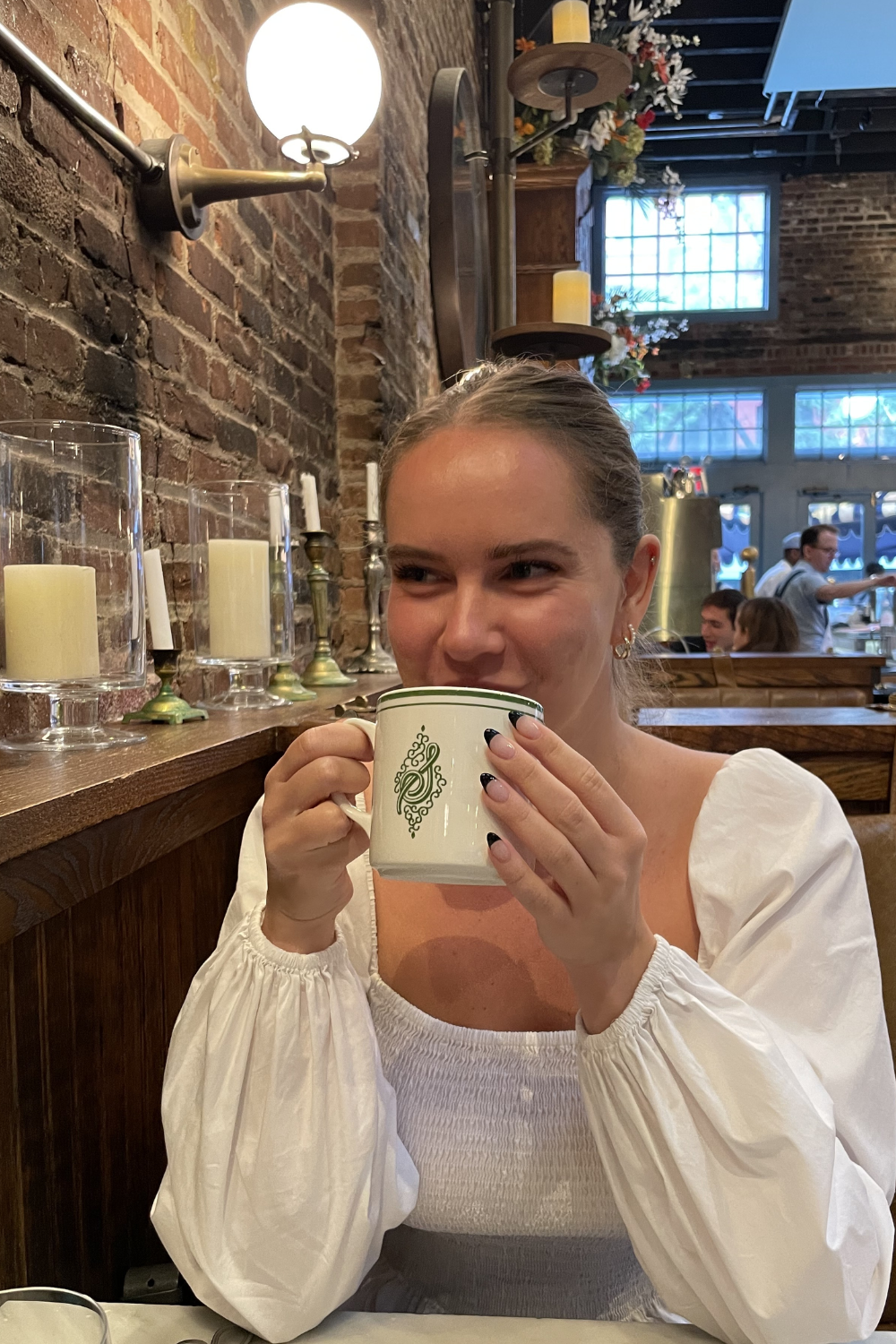
Valeza drinking a mug of matcha tea
My final thoughts
I’ve always enjoyed matcha, but I feel this experiment has reignited my love for the earthy green powder. While I will still indulge in the occasional coffee - especially during spiced drink season - I’ll aim to keep this to once or twice a week after the benefits I've noticed of drinking matcha more regularly.
It really pleasantly surprised me - and, despite what you might assume, became incredibly easy to incorporate into my regular routine. I started to fill a takeaway cup with my morning tea before leaving the house if I was in a rush, and as mentioned earlier, switched my usual iced latte order for an iced matcha. If you're still on the fence and considering giving it a go, I can't stress how much better I felt for it.
As I've become somewhat of a matcha connoisseur now, of course I couldn't help but share my top picks. Keep scrolling for some of the matcha powders and drinks I tried and loved during my two-week trial.
Shop the matcha teas I loved during my two-week trial:
Shop the best matcha aids to make yours with now:
What’s the best way to make matcha tea?
Matcha powder is incredibly finely milled, so you can’t simply stir it into hot water like you do with instant coffee. You’ll end up with a bunch of bitter-tasting lumps floating around in your water, which - trust me - nobody wants first thing in the morning.
I used to make my matcha tea the traditional way - using a specially designed wooden whisk. While this traditional method is very effective (and gives you a lovely froth at the surface), the whisk itself can be quite tricky to clean thanks to its delicate wooden prongs. More recently (and throughout the course of this experiment), I’ve been making my matcha teas and lattes at home in my Hotel Chocolat Velvetiser.
Not just for hot chocolate, this clever contraption is perfect for foaming milk and blending powders into liquid, too. Simply spoon your matcha powder in and fill it to the maximum line with water if you’re making tea, or your choice of milk if you’re making a latte. After a couple of minutes, you’ll have the perfect not-too-hot, not-too-cold matcha - the Goldilocks of warm beverages, if you will.
For iced lattes, fill your Velvetiser with matcha powder and water to the minimum line and then pour it over your cold milk and ice in a larger glass.
How can I make matcha tea taste better?
While I quite enjoy the earthy taste of matcha, I know it takes some getting used to. If you like your tea to have a bit more flavour, the nutritionists we spoke to for this feature recommend adding honey or cinnamon to balance out the taste.
Saying this, the most frequent complaint I’ve heard about matcha by far is that it tastes too bitter. Just FYI - all experts again confirmed that good quality matcha should never taste bitter. Any bitterness would usually come from two things:
The quality: Premium and ceremonial grade matcha powders like the ones outlined above are the only options you should be using to make tea. Culinary-grade matcha is made for just that - culinary creations (think matcha cookies, cakes and frosting).
The quantity: A surefire sign that you’ve used too much matcha powder is that it will start to form a silty pile at the bottom of your cup. Half a teaspoon is more than enough for a single cup of tea, or you can use a wooden matcha spoon which will give you the perfect amount for one cup, every time. If you’ve been adding heaped spoonfuls of the stuff to your mug then not only will your tea taste bitter but you’ll also go through your matcha far too quickly.

Valeza Bakolli is Marie Claire’s Junior Shopping Editor, and as such, she’s made it her mission to encourage people to shop mindfully and with purpose. In her role, she covers all things shopping - from thoroughly road testing the best fitness kit to keeping a finger on the pulse of what’s new in fashion and beauty. She dedicates hours of her time every day to scouring the online stores, finding the best products online so you don’t have to (from small and sustainable businesses wherever possible, of course).
